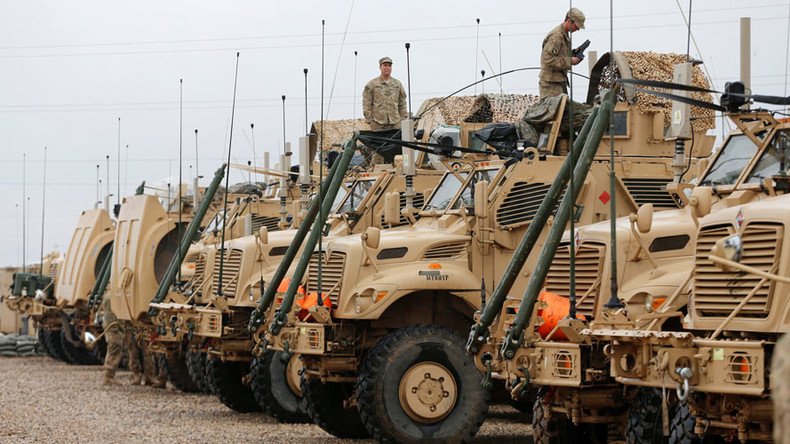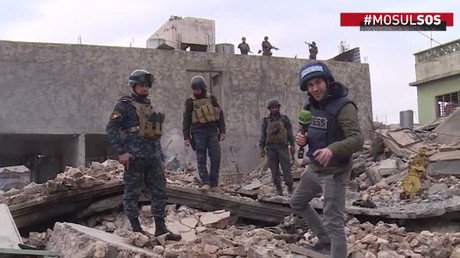US troops to stay in Iraq after fight against ISIS ends – Defense Dept. officials

American troops will apparently remain in Iraq even when the fight against Islamic State has ended, according to Pentagon officials, including US Defense Secretary James Mattis, who said that keeping soldiers on the ground is in America’s “national interest.”
The US Defense Department’s top officials expressed their desire to keep US troops in Iraq at a Senate Appropriations Committee hearing on Wednesday.
Mattis made it clear that US involvement will not end when Mosul is finally captured from Islamic State (IS, formerly ISIS/ISIL).
“I believe it’s in our national interest that we keep Iraqi security forces in a position to keep our mutual enemies on their back foot,” he said, as quoted by the Military Times.
The defense secretary went on to say that he does not “see any reason to pull out again and face the same lesson,” adding that the US “needs to remain decisively engaged in Iraq and in the region.”
Joint Chiefs Chairman Gen. Joseph Dunford Jr. agreed with Mattis, stating that Iraqi security forces will need US support “for years to come.”
The comments come as the brutal battle continues for Mosul, the self-proclaimed capital of IS in Iraq.
Around 400,000 civilians are stuck in Mosul’s old city, which is currently held by IS militants. They are facing food and electricity shortages, with the UN High Commissioner for Refugees believing the “worst is yet to come.”
US involvement in the military campaign against IS is approaching its third anniversary, evolving from airstrikes in the summer of 2014 to the eventual deployment of around 6,000 ground troops across Iraq and Syria, whom Washington mostly calls “advisors.”
During a Tuesday meeting with Iraqi Prime Minister Haider al-Abadi, US President Donald Trump himself said that American troops should have remained in Iraq.
“Certainly, we shouldn’t have left. We should never ever have left,” Trump said as quoted by Newsweek, noting that the withdrawal was followed by chaos.
But Abadi appears to have another plan in mind, stating last week that the international military presence in Iraq should be reduced once IS militants are defeated.
“As we are crushing Daesh [Arabic pejorative term for IS], it is clear that there is a need to reduce the number of our allies who are helping us,” he told Middle East Eye.
Around half a million people died in Iraq from war-related causes during the US-led intervention between 2003 and mid-2011, according to a study published in 2013. That figure was around four times bigger than previous estimates.
A separate 2013 study found that the Iraq War cost $1.7 trillion, with an additional $490 billion owed to war veterans, noting that the expenses could grow to around $4 trillion over the next four decades, counting interest.
Earlier this week, Abadi reportedly said that rebuilding Mosul and the reconstruction of Anbar province could cost up to $50 billion in the coming years.
Mattis acknowledged a financial need for re-building, but stressed that the US will not be solely responsible for the bill.
“It’s going to be an international effort, it should not be carried fully by the American taxpayer,” he said on Wednesday. “But we should certainly be part of it.”














